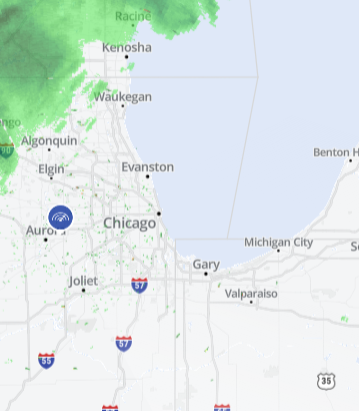The coronavirus outbreak caused a sudden drop in global stocks last week, leading many to worry about money that millions of people count on for things like retirement or buying a home. But financial experts say it's important not to panic.
Craig G. Bolanos Jr., the CEO of west suburban-based financial planning company Wealth Management Group, spoke to NBC 5 News Today on Monday as many investors worried about what would happen to their money in the week ahead. Public health crises can lead to economic loss when lots of people change their daily habits, Bolanos said.
"We're worried about people no longer traveling," Bolanos said. "We're worried about people no longer going about their daily lives and all of a sudden that has a ripple effect through the overall economy."
Bolanos pointed to previous declines in the market that were related to global health outbreaks such as SARS in 2003, MERS in 2012, Ebola in 2014 and Zika in 2016. Each dip was followed by a recovery.
"We saw about eight percent come off the market in the last month," said Bolanos. "We're about 12 percent off the all-time highs. So right now that seems to be on pace with the last five pandemics in the last 20 years."
Bolanos uses the S&P 500, a stock index which measures a broad swath of the economy, to calculate the average effect on people with money in the stock market. A 2019 Gallup survey found roughly half of Americans own stocks, including mutual funds or popular retirement accounts like an IRA or 401(k).
Though many investors were rattled by quick drops in stock prices, a recent CNBC analysis showed the downturn has a long way to go to resemble the Great Recession of the late 2000s or the stock market crash of 1987.
Local
Bolanos had specific advice for investors at different stages. Younger people with exposure to the stock market have decades to wait for a recovery, he noted.
"If I'm 20 or 30 years away, I'm going to be more focused on my savings rate than my rate of return because at the end of the day we've learned that...the market has a way of ultimately seeing past this," said Bolanos.
Bolanos thinks older investors should have more money put away that isn't as susceptible to fluctuations in stock prices.
"If you're on the cusp [of retirement] or already retired, you always need to expect the unexpected," Bolanos said. "Maybe that means make sure you do have not one, but two to three years of safe money put away just in case things get a little bit worse."



